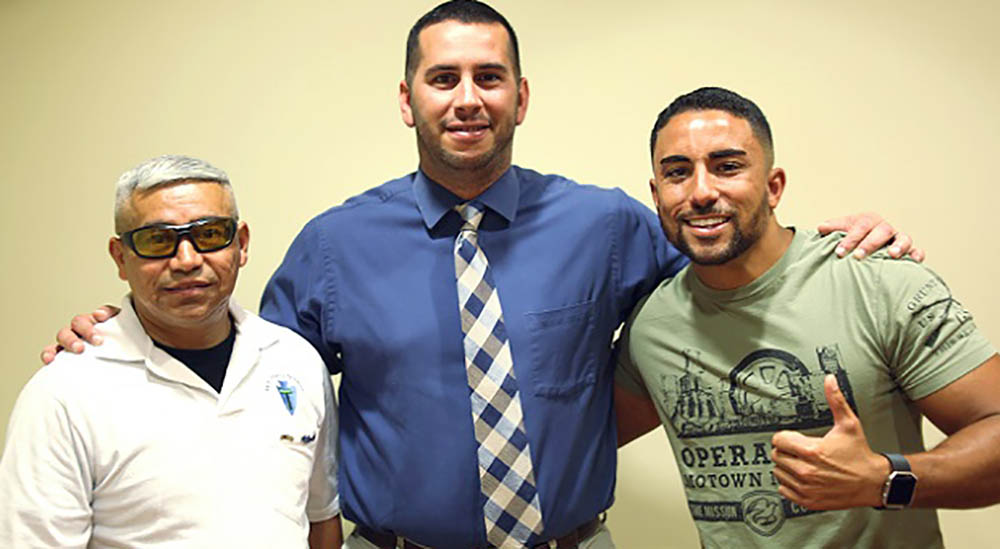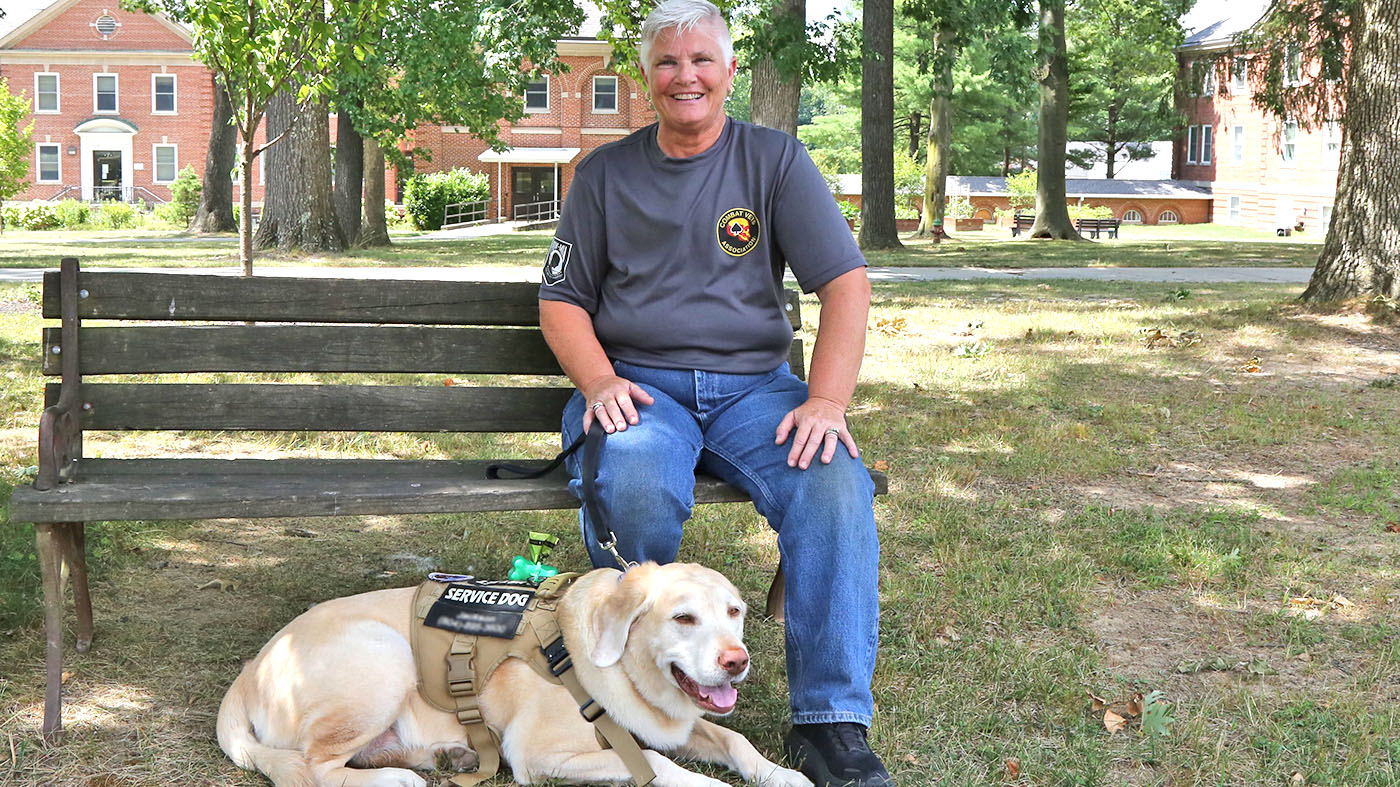Every year we celebrate peer support specialists as a celebration of specialized mental health profession in its relative infancy.
VA dramatically increased the peer support footprint in 2012 by hiring an additional 800 peer support specialists (PSS) to combat the flood of Veterans of Operations Iraqi and Enduring Freedom.
Navy Veteran Michael Collins, lead peer support specialist, was happy to see the investment in the program. “This program was the missing link in the mental health community,” he said. “Peer support not only gave those Veterans the opportunity to connect with other men and women who’ve also served, but it also bridged the gap between the Veteran and their mental health provider. It creates a continuity of care during the ‘meantime in between time’ and keeps Veterans connected with mental health throughout.”
What is a peer support specialist?
VA’s peer support specialists have some mental health or other occurring disorder. They receive training and obtain a certification that is recognized nationally to serve as role models, using their shared experiences to coach and mentor other Veterans through their recovery process by identifying skills and strengths.
It is akin to the buddy system in the Armed Forces.
Jeremy wasn’t open to getting help
Jeremy Noble is an Air Force Veteran who was discharged in 2009. He said transitioning was rather difficult, beginning with the transition services provided by the Air Force, which Noble felt were not adequate.
Somewhat apprehensive about getting into the VA system, Noble networked with several Veterans.
“Everything that I’ve done in VA was after I heard it from another Veteran,” Noble said. “I would grab those resources – education, mental health, anything that was going to help me. Even housing because for a time I was homeless.”
Adding to his anxiety, his long-term primary care physician resigned. His new provider recognized a need and introduced him to the Peer Support Program.
“At first I wasn’t open to getting help,” Noble said. “I wasn’t open to talking about things that had happened, but I got to the point if I don’t get help, it might be really bad because I can’t do it on my own.”
Noble said he had a great peer group at the South Texas VA. They cared what happened to him, with his family. They were invested. Noble says that investment is no mystery. It comes with service.
He has since completed two master’s degrees and now wants to help the Veterans who are experiencing the same difficulties with transition and recovery that he went through.
For Roy, civilian life was difficult after 27 years in uniform
Roy Martinez, a 27-year Army Veteran, could by all measures be considered a tough guy. He has completed Ranger school and other special forces schools offered by foreign military partners, rang a 5K in 16 minutes and completed multiple deployments.
Martinez has been through more than most. Even so, he had difficulty facing civilian life after nearly three decades in the military. “It was a strange world coming out here, you know? No salute, no courtesy that should be rendered. That’s foreign to me,” Martinez said.
The military separation brought on anxiety that began to affect all his relationships.
“The Army expects us to be mentally sharp, physically strong and morally straight, and I was none of that when I got out,” he added.
Despite feeling embarrassed that he needed help, Martinez sought out mental health services through the peer support program and was instantly glad he did.
“Peer support assisted me in not quitting college,” he said.
Martinez attributes the fact that he stayed the course and pushed through to get his diploma because of his fellow group members. They guided him and said to take it one assignment, one class at a time. He calls the difficulties of isolation poison.
“The peer support specialist is tossing a rope down and pulling us up out of the darkness,” he said. “This is about being mentored to succeed. That’s exactly what these peer support specialists do. They motivate us to succeed and understand what’s around us.”
Topics in this story
More Stories
Combat Veteran faces the traumatic events of her PTSD during prolonged exposure therapy and looks forward to the days to come.
Bob Jesse Award celebrates the achievements of a VA employee and a team or department that exemplifies innovative practices within VA.
The Medical Foster Home program offers Veterans an alternative to nursing homes.







Good Day,
My name is Joseph Casim and I am a U.S. Navy veteran. I am also a VA certified Peer Support Specialist since 2019, in which I have been working with Volunteers of America Los Angeles through a program named Battle Buddy Bridge in Orange County, California. I recently was reading an article on the experience of Texas VA peer support specialists and it caught my attention because I will be moving to Houston, Texas around February-March 2022. Because of this move, I have been desperate to find employment in Houston within my area of expertise but have come up dry since August of this year. If there are any opportunities you can point me to or organizations I can reach out to, I would gladly appreciate it. Thanks so much and happy holidays!
Sincerely,
Joseph Casim